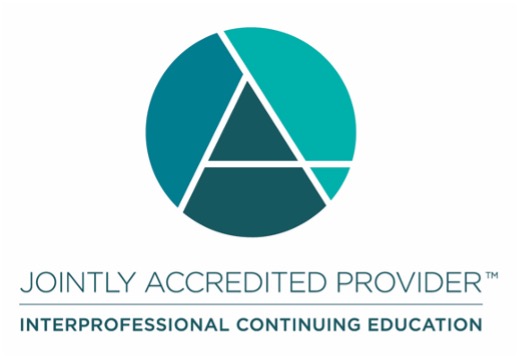Webinar: Beyond Blood Sugar: Team-Based Approaches to Dietary Variations and Behavior Change for Diabetes in Hispanics and Latinos

Practitioners in all areas of health care face challenges when providing diabetes nutrition interventions and self-care management education while also being sensitive to cultural variations in the Hispanic/Latino population. There are many regional differences between Hispanic/Latino subgroups, not only relating to the composition of the diet, but also when considering traditional cooking styles, eating habits, timing of meals, and availability of food – to name a few. Additionally, the diet of these populations is heavily influenced by the traditional dietary patterns of their country of origin - such as Mexico, Puerto Rico, Cuba, and Central and South America - making the care of Hispanics/Latinos who are managing diabetes that much more complex.
Join Nilda Benmaor, MS, RDN, CDCES, on Wednesday, March 26, 2025, from 2-3:30 p.m. ET, for a webinar that will discuss MNT for Hispanics/Latinos who are managing diabetes. Nilda will incorporate counseling that considers clients’ preferred foods from different countries, individualized meal plans, serving portions, naming and timing of meals, along with nutrient composition and the impact on blood sugar levels. Nutrition professionals, together with social workers, will learn how to help patients improve their adherence to dietary recommendations by developing strategies that take into account Hispanic/Latino health beliefs, attitudes, food choices, and culturally appropriate interventions. Finally, through case study presentation, Nilda will illustrate how practitioners can encourage patients to adopt healthier eating habits and overcome barriers to change.
Learning Objectives
After completing this continuing education activity, health care professionals will better be able to:
- Select and individualize culturally-appropriate and country- and region-specific foods and meal plans for Hispanics/Latinos with diabetes.
- Identify the nutrient composition of traditional foods and their impact on postprandial blood sugar levels.
- Assess a patient’s cultural beliefs and eating behaviors and counsel them on the impact these have on diabetes self-care management.
- Consistently communicate with other care team members to help patients manage diabetes care nutrition recommendations.
Additional Information
 Nilda Benmaor, MS, RDN, CDCES, has extensive experience in nutrition counseling and diabetes care. Her focus and passion have been learning how to better serve the Hispanic population in response to their higher risk for diabetes. Nilda has spent many years studying the differences in types of foods from each Latin American country and how they affect patients with diabetes.
Nilda Benmaor, MS, RDN, CDCES, has extensive experience in nutrition counseling and diabetes care. Her focus and passion have been learning how to better serve the Hispanic population in response to their higher risk for diabetes. Nilda has spent many years studying the differences in types of foods from each Latin American country and how they affect patients with diabetes.
As a professor at California State University Northridge, as well as Mission College in Sylmar, California, Nilda teaches courses with an emphasis on food and culture, including community nutrition and contemporary issues in food and nutrition.
Disclosures:
The faculty and planners for this educational activity have no relevant financial relationship(s) with ineligible companies to disclose. An “ineligible company” includes any entity whose primary business is producing, marketing, selling, re-selling, or distributing healthcare products used by or on patients.
 In support of improving patient care, Great Valley Publishing Company is jointly accredited by the Accreditation Council for Continuing Medical Education (ACCME), the Accreditation Council for Pharmacy Education (ACPE), and the American Nurses Credentialing Center (ANCC), to provide continuing education for the healthcare team.
In support of improving patient care, Great Valley Publishing Company is jointly accredited by the Accreditation Council for Continuing Medical Education (ACCME), the Accreditation Council for Pharmacy Education (ACPE), and the American Nurses Credentialing Center (ANCC), to provide continuing education for the healthcare team.
This activity will also award credit for dietetics (CDR CPEU).
Dietitians:
This activity will also award 1.5 CDR CPEU credits for dietetics. Completion of this RD/DTR profession specific or IPCE activity awards CPEUs (One IPCE credit = One CPEU).If the activity is dietetics-related but not targeted to RDs or DTRs, CPEUs may be claimed which are commensurate with participation in contact hours (One 60-minute hour = 1 CPEU). RDs and DTRs are to select activity type 102 in their Activity Log. Sphere and Competency selection is at the learner's discretion.
Social Workers:
As a Jointly Accredited Organization, Great Valley Publishing Company is approved to offer social work continuing education by the Association of Social Work Boards (ASWB) Approved Continuing Education (ACE) program. Organizations, not individual courses, are approved under this program. Regulatory boards are the final authority on courses accepted for continuing education credit. Social workers completing this course will receive 1.5 ethics, clinical, cultural competence, or general types of continuing education credits.
Interprofessional:
This activity was planned by and for the healthcare team, and learners will receive 1.5 IPCE credits for learning and change.
Available Credit
- 1.50 Interprofessional Continuing Education (IPCE)This activity was planned by and for the healthcare team, and learners will receive Interprofessional Continuing Education (IPCE) credits for learning and change.
Price
Required Hardware/software
Ensure your browser's cookies are enabled in order for the webinar software to function properly.

 Facebook
Facebook X
X LinkedIn
LinkedIn Forward
Forward